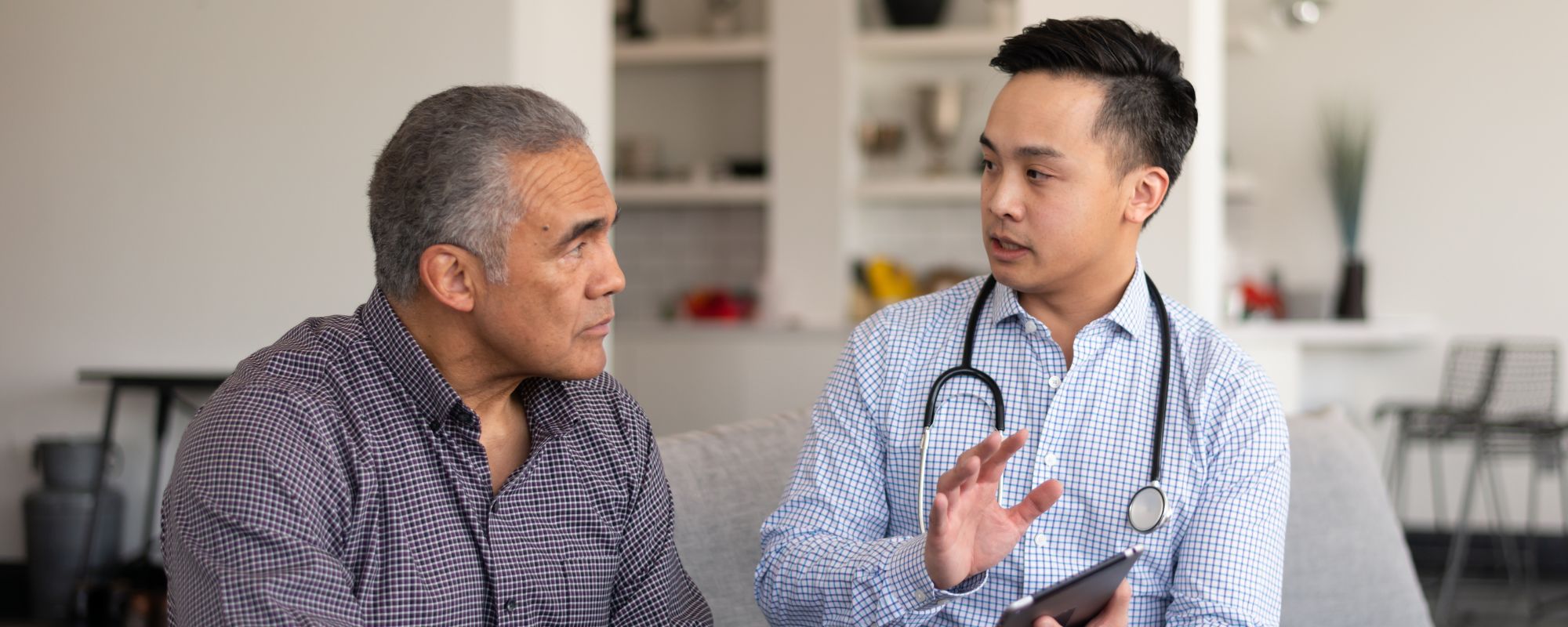Being in addiction recovery is nothing to be ashamed of, however it should always be a personal choice to share if you are in recovery. Your right to remain anonymous should be upheld by those you choose to surround yourself with. You may find it unnecessary to tell others about being in recovery, or hard not to tell others— this is why disclosing your recovery is your choice alone.
In certain situations, you may want to protect your anonymity. We feel that disclosing that you are in recovery is completely up to you, no one should be able to ‘out’ you as someone in recovery, especially if you do not wish for others to know. Keep in mind that there are pros and cons to disclosing that you are in recovery.
Let’s start with the cons first:
- people who are not in recovery, probably will have a hard time understanding what ‘being in recovery’ means.
- judgment. Most people judge what they cannot understand.
- people may not protect the vulnerable information you share with them. Just because you’re bettering yourself as a person, and living spiritual principles, does not mean they are. Be careful who you disclose to, because they could end up sharing your personal information with other people.
- you may be treated differently. This point goes along with judgment. When people hear that you are in recovery from drugs or alcohol, they may push stereotypes onto you and end up treating you differently than before they knew.
- people may start acting weird around you. Friends or co-workers may try to edit what they say or do around you, which could be good— as they are trying not to do anything triggering to you, however, it may make you feel a little odd.
Now, let’s look at the pros:
- honesty
- vulnerability
- you could set an example
- accountability
- educate
- support
- demolish stereotypes
- no more excuses are necessary
- make friends
You can just be honest and candid about where you’re at, what you’ve experienced, and what you’re experiencing now. If you stay honest, you don’t have to worry about remembering what you have and haven’t shared with certain people.
Choosing to become vulnerable with those around you will grow a stronger connection. In disclosing this vulnerable information, you can strengthen your friendships and relationships.
Disclosing your own struggle with addiction and being in recovery may prompt others to share about their own struggle. Sharing your own experience could very well become the catalyst for someone else in your life to seek treatment for their own addiction. You could inspire others to be open about their own recovery also.
Disclosing that you are in recovery will provide you with a sense of accountability. Because more people in your life are aware of your recovery, if you ever were to try and pick up a drink or drug, they would stop you because of what you’ve shared.
You could use disclosing your own status in recovery to educate others on addiction and recovery— what both things mean, how they work, what they impact. You could use this opportunity to help others understand addiction and recovery, to lessen the stigma and counter any judgment or ignorance surrounding the topics.
If your friends, co-workers, family members, etc. know that you’re in recovery, they could be a valuable source of support for you through out your recovery. These people will inevitably help to protect your sobriety by keeping in mind that certain events could be triggering; if these people know you are in recovery, they will be much more likely to keep your recovery in mind when it comes to outside parties or events. For example: If you and your friend are both going to the same party and they get there first, and see that drugs are being used everywhere, they can call and warn you.
Break down people’s stereotypes of alcoholics or drug addicts by showing the power of recovery. Being where you are- in recovery from drugs or alcohol- is something to be celebrated and can teach others that addiction doesn’t just effect the people they view as a stereotypical addict or alcoholic.
You’ll no longer have to explain why you don’t want a drink or always turn down the after-work bar trip. Creating reasons why you can’t do certain things is tiring as it is, so put those excuses aside.
Because 12-step programs of recovery are anonymous, you disclosing your status in recovery to others may uncover that some people in your life are also in recovery. Sharing that you’re in recovery could land you some unsuspecting allies that are involved in the same lifestyle as you.
How to Disclose
When it comes to how you can disclose that you are in recovery, it is up to you. Some things you can say are…
- “I’m in recovery”
- “I don’t drink or do drugs, because I used to struggle with addiction”
- “I’m in a recovery program”
- “I struggle with addiction and am currently recovering from that addiction”
- “I am recovering from substance abuse issues”
- “I stay away from drugs and alcohol because I struggle with addiction problems and am in recovery”
The way you disclose, is completely up to you. How you disclose will depend on how you are most comfortable disclosing. After you disclose, if someone asks you questions that you are uncomfortable in answering, set a boundary with them. You could say “I wanted to share that I’m in recovery but don’t want to get into the details” or “I don’t feel comfortable talking about the specifics, I just wanted you to know that I’m in recovery.” Setting and maintaining a firm boundary will maintain a safe space.
When Should You Refrain from Disclosing?
Certain situations are better suited for your honesty, as far as you disclosing being in recovery. Of course, as I previously stated, disclosing your status in recovery is entirely up to you. I personally recommend protecting your anonymity in certain situations like in a job interview, at work, in social settings with people you do not trust or know very well, meeting someone for the first time, etc.
It is also important to note that your own recovery is the only recovery you should ever even consider disclosing; do not disclose another person’s status in recovery. You have no right to ‘out’ another person as being someone in recovery; you only hold the right to choose whether or not you want to share that you, yourself are in recovery. There is nothing more annoying then when someone takes away that decision from you. The only situation in which ‘outing’ someone else’s recovery is acceptable is in the event of an emergency, like an accident when the person cannot speak for himself or herself. For example, if your friend in recovery gets in a car accident and is unconscious, you could let the doctors at the hospital know that they are in recovery and to shy away from using narcotic drips or narcotics to treat them, if possible. When your friend regains consciousness, then he or she can make the decision for medications after speaking to the doctor and maybe his or her sponsor.
A good rule-of-thumb when deciding if you should disclose or not, is by weighing the pros and cons of that specific situation. If the cons outweigh the pros, you may want to refrain from disclosing.
When To Disclose
In my opinion, the most important situations to disclose that you are in recovery are when you are receiving medical care. I think disclosing when you are at the doctor’s office, in the hospital, at a clinic, meeting with a psychiatrist, or speaking to a medical professional are the most essential times for you to disclose that you are in recovery. These medical professionals will be able to alter your treatment to best suit someone in recovery, therefore protecting your sobriety by prescribing or using medications that are non-addictive, non-narcotics, and non-habit forming. These situations will allow a medical professional to tailor your treatment to best suit your needs as someone who is in recovery. You have a right to disclose your status in recovery, to whomever you choose or see fit. There is no formula for when you should disclose, and my opinions in this article are merely suggestions and accounts from my own experiences.
Factors that are most important when figuring out when to disclose include:
- your comfort
- your level of trust with who you will be disclosing to
- the safety of the space
- what disclosing the information could impact
Put your recovery and sobriety first, and only disclose if it will strengthen your recovery or sobriety as opposed to harming it. It is significant to remember that once you disclose that you are in recovery, you should not have any expectations in terms of a reaction. You cannot control the way others will receive the information, the way others respond to the information, or what others will do with the information. Other people’s reactions and behaviors should not be anticipated to reflect any expectations of yours. Once you disclose that you are in recovery, you cannot take back the information; you are putting the ball in that person or people’s court. This is why it’s important to consider the factors above, and the pros and cons of each situation, when deciding if you would like to disclose or not.
Final Thoughts
You should be proud to be in recovery from addiction. You have overcome something that claims many lives, something that takes strength and courage to overcome. Addiction recovery is a personal experience, and what you do on your journey of recovery should be personal to you. We want to empower you to make your own decisions when it comes to sharing that you are in recovery. Disclose that you are in recovery only if it’s right for you and your sobriety. Don’t be afraid to protect your anonymity if you feel that it’s best for you, your recovery and your sobriety.
Reach Out
If you or someone you know is struggling with an addiction, please reach out to us at 877-RECOVERY or (888) 308-1985. Our team makes themselves available to take your call 24 hours a day, 7 days a week. Because we care.












